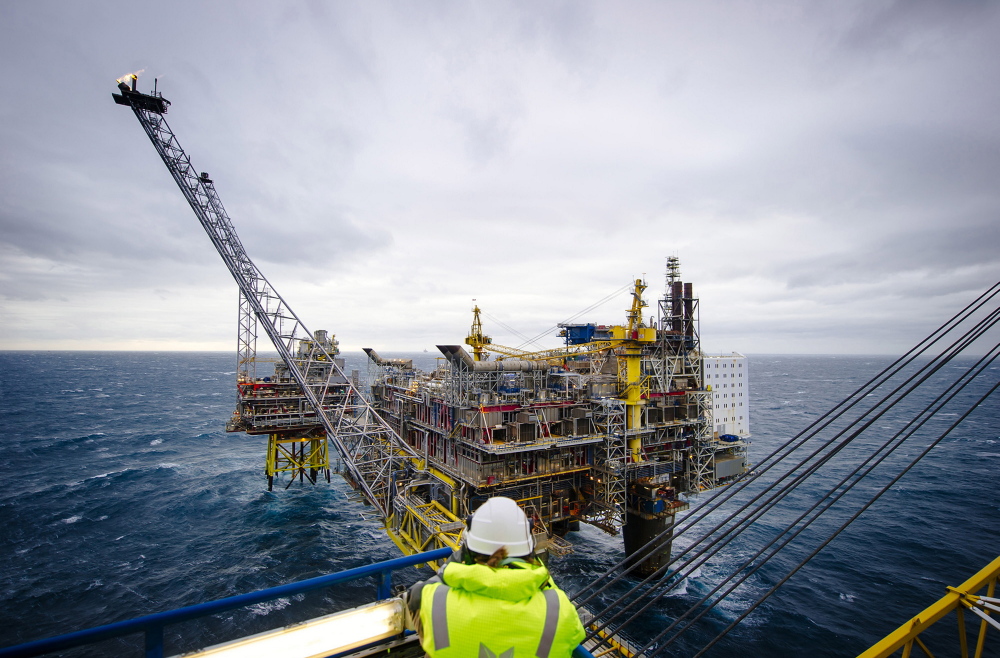Gov. LePage has been clear that Maine’s energy future should be fueled with natural gas. He has championed expansion of gas service into central Maine and promoted a plan to increase capacity of the gas pipeline system, bringing more of the product into New England, which has some of the highest energy prices in the nation.
Now he has joined Southern governors in a campaign to increase offshore drilling for gas and oil, in the Gulf of Mexico and the Atlantic, including, presumably, off Maine.
Drilling off Maine has been studied in the past, and the idea is a loser. If there is gas off New England, it would be expensive to get. Gas reserves in nearby Canada turned out to be much smaller than anticipated, and the exploitation of the shale basin in Pennsylvania and western New York has brought natural gas prices down to historic lows.
TOO MUCH RISK
Maine is a state that depends on the ocean for tourism and commercial fishing, including lobster fishing. The state has too much to lose in an oil spill to risk drilling for small amounts of expensive oil.
But that doesn’t mean that Maine has no options to control its energy costs. There are steps Gov. LePage could take right away that would do more for Maine than drilling.
The first thing the governor should do is call on Washington to strictly limit the exports of liquefied natural gas.
Unlike oil, which sells for one price in a world market, gas is sold in local markets and the costs vary widely. The United States is enjoying a significant price advantage over Europe and Asia, where gas costs about twice as much as it sells for here.
Naturally, international petroleum companies want to ship American gas overseas to sell at the higher rate. Maine Sen. Angus King, a member of the Energy Committee, has questioned the wisdom of that strategy, and LePage should, too.
America’s gas fields are a strategic resource that should be managed that way. Excess production in the spring and fall could be liquefied and stored for use in the high-demand winter months.
That would be a way to get more low-priced gas into New England without the risk of drilling or the cost of building pipelines.
POWER FROM THE FOREST, SEA
And Maine might not be an oil producer, but its forests and wind provide local renewable energy that could augment and one day replace gas.
LePage chased away the $120 million offshore wind demonstration project started by the Norwegian company Statoil, but there may be other companies willing to partner with the University of Maine on its experimental offshore wind plant. They won’t if LePage continues to try to undermine wind development in the state.
Biomass is another way that Maine could offset its high energy costs. From a simple wood stove to sophisticated biofuels, the technology to make energy from wood is constantly improving. Our forest is better than a huge undersea gas field, if we can learn to take advantage of it.
It didn’t cost Maine anything for the governor to sign onto the offshore drilling campaign, but it’s not likely to help much either. There are other steps he could take that would really make a difference.
Send questions/comments to the editors.



Success. Please wait for the page to reload. If the page does not reload within 5 seconds, please refresh the page.
Enter your email and password to access comments.
Hi, to comment on stories you must . This profile is in addition to your subscription and website login.
Already have a commenting profile? .
Invalid username/password.
Please check your email to confirm and complete your registration.
Only subscribers are eligible to post comments. Please subscribe or login first for digital access. Here’s why.
Use the form below to reset your password. When you've submitted your account email, we will send an email with a reset code.